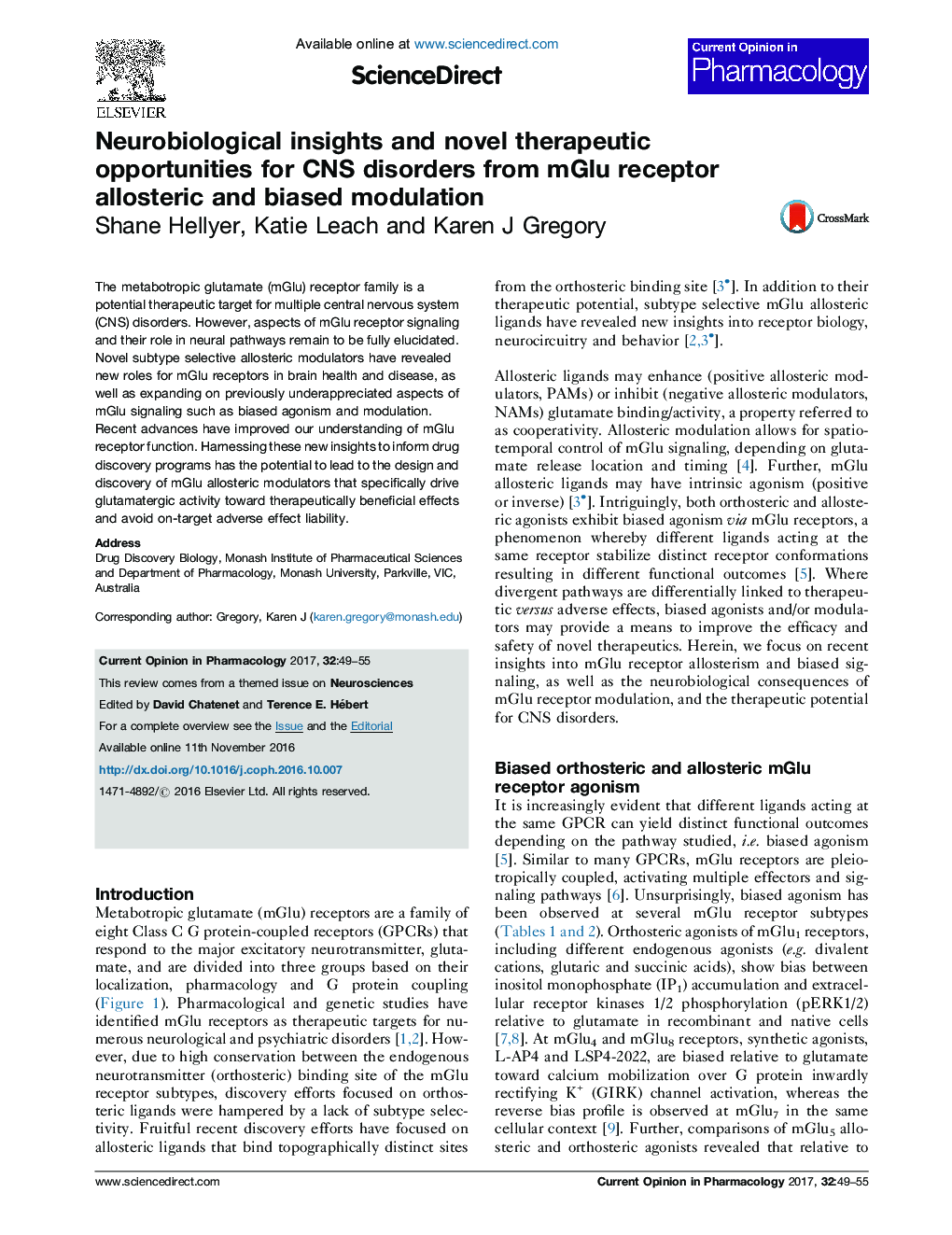| کد مقاله | کد نشریه | سال انتشار | مقاله انگلیسی | نسخه تمام متن |
|---|---|---|---|---|
| 5554314 | 1558116 | 2017 | 7 صفحه PDF | دانلود رایگان |

- Selective ligands have helped define the neurobiological roles of mGlu receptors.
- Biased agonism/modulation is a key feature of mGlu signaling.
- Biased signaling should inform future mGlu drug discovery programs.
The metabotropic glutamate (mGlu) receptor family is a potential therapeutic target for multiple central nervous system (CNS) disorders. However, aspects of mGlu receptor signaling and their role in neural pathways remain to be fully elucidated. Novel subtype selective allosteric modulators have revealed new roles for mGlu receptors in brain health and disease, as well as expanding on previously underappreciated aspects of mGlu signaling such as biased agonism and modulation. Recent advances have improved our understanding of mGlu receptor function. Harnessing these new insights to inform drug discovery programs has the potential to lead to the design and discovery of mGlu allosteric modulators that specifically drive glutamatergic activity toward therapeutically beneficial effects and avoid on-target adverse effect liability.
Journal: Current Opinion in Pharmacology - Volume 32, February 2017, Pages 49-55